The united North Atlantic Treaty Organization (NATO) response to the Russian invasion of Ukraine has survived more than a hundred days of brutal fighting. But cracks have recently emerged on both the diplomatic and domestic fronts, along with talk of a negotiated settlement of the war on terms most Ukrainians now reject. Rarely discussed in this new phase, hidden among the cracks, looms a legitimate, realistic concern: what happens when and if Ukraine and the United States differ on what constitutes an acceptable outcome to the war? Now is not the time to talk of concessions Ukraine may one day choose to make. But is it not too early to consider what the United States should do if, as now seems possible, Ukraine demands total Russian withdrawal and the U.S. is willing to accept a partial withdrawal?
Meanwhile the war continues, with no end in sight. Among diplomats, however, things have begun to stir, kicked off by a Jovian warning from former U.S. secretary of state Henry Kissinger that the war could widen if negotiations between Ukraine and Russia do not begin “in the next two months,” based, he said, “ideally” on a return to an undefined “status quo ante.” Kissinger’s warning triggered an angry rebuttal from Ukrainian President Volodymyr Zelenskyy, who said Kissinger had 1938 on his calendar. A Ukrainian parliamentarian added it was “truly shameful” that Kissinger could recommend “giving up on part of the sovereign territory” of Ukraine as a “way to peace.”
In the face of barbaric Russian assaults and maximalist demands, the Ukrainian position on negotiations seems to have hardened. Now, many officials argue, Russia would have to withdraw to its February 2014, pre-Crimea annexation border with Ukraine, not the February 2022 de facto border from which Russia launched its current attack. Is this Ukraine’s ultimate demand? Or a negotiating position? Either way, it prompted a rush of Western concern. French President Emmanuel Macron cautioned Kyiv that “we must not humiliate Russia.” While U.S. President Joe Biden and other NATO leaders have repeatedly stressed they will not impose negotiating terms on Ukraine, still Biden felt the need to insist on a “negotiated end to the conflict,” hinting clearly the U.S. preference for a compromise solution to the war. In addition, Italy laid out a four-point peace plan with the underlying message that the war end not with victory over Vladimir Putin’s Russia but with a negotiated solution acceptable to both sides.
The cracks on the domestic front are more subtle but still clear in their likely impact. The GOP’s congressional leadership continues to support large-scale American military aid to Ukraine, but a growing GOP bloc opposed to current levels of aid has emerged on Capitol Hill and on the campaign trail. If, as current polls suggest, the Republicans win control of Congress in November, America’s leadership of the global response to Russian aggression in Ukraine would be challenged at home and surely weakened.
Reports from Moscow suggest Putin is banking on just such an outcome to the November elections. In other words, Putin may feel time is on his side, and he could be right, as an ugly battlefield stalemate continues week after week, month after month, with hundreds of Russian and Ukrainian soldiers (and Ukrainian civilians) dying daily, millions displaced from their homes (many of which are now rubble), and neither army able to overwhelm the other.
Much may yet depend on three basic interrelated issues. First is whether Ukraine can sustain the fight — hold ground, inflict losses, maintain home front morale. The answer hinges on a continuing flow of Western arms and diplomatic support, not only from the United States but also from western Europe. And whether that support continues hinges, in turn, on the willingness of Western electorates to live with the side effects of this war — higher inflation and energy costs, shortages of energy, wheat, and other basic products. Already the war is being squeezed off the front page by domestic issues such as gun control and abortion. Continuing support for Ukraine may soon erode, if it hasn’t already.
The second issue is military. Although Ukrainian forces have so far prevailed in northern Ukraine, including in defense of Kyiv, they are clearly struggling to maintain their position in the Donbas. Whether this shattered country, even if supported by continuing Western military aid, can continue to blunt relentless Russian attacks, is still open to question. Ukraine’s population is less than one-third the size of Russia’s. Its economy is one-ninth the size of Russia’s. So far Ukraine has performed brilliantly against heavy odds. Possibly a combination of mounting casualties, stunning depletions in military equipment, and dreadful morale problems may cause the Russian offensive to stall and lose ground, but the question stubbornly remains: for how much longer can Ukraine continue to hold off a desperate Russia?
Furthermore, Putin has hinted that he will use any weapons, including nuclear weapons, if necessary, to prevail in the war, certainly to avoid defeat. Were the United States to up the ante and give the Ukrainians longer-range missile systems with ranges beyond 50 miles, the besieged Russian autocrat has cautioned, “we will draw appropriate conclusions from this and use our weapons, of which we have enough, to strike at those targets that we are not striking yet.”
Putin does not appear to be a leader stealthily edging toward a deal with Ukraine. Rather, he seems to think that Russia can fight for as long as it takes to achieve his ends.
The third issue concerns the impact of the war and of Western sanctions on the Russian people. Whether Western economic sanctions can do enough damage to the Russian economy to force Putin to readjust his war aims remains uncertain. History gives scant cause for optimism. Economic sanctions have rarely, if ever, caused nations to abandon what they regarded as vital national security objectives.
Also, Russian public opinion about the war can be read in different ways. Recent polling by the Levada Center in Moscow suggests almost half of the Russian people “unconditionally” support Putin’s war, an additional 30% also support it but with “reservations,” and 19% oppose it. As Russian deaths increase and wounded veterans return to their homes, opposition may grow, as it did with the Soviet war in Afghanistan in the 1980s.
Two other factors must be kept in mind when judging Russian public opinion. One is a deepening unhappiness among younger Russians who have enjoyed Western contacts and tastes but see them vanishing by the day. Many thousands have already left the country. They are of a once expanding middle class, apparently eager, as one Russian language teacher put it, “to get back to our ordinary lives.” The other factor is the tens of thousands of courageous Russians from many professions and walks of life, who have publicly opposed the war in scores of letters sent directly and openly to the Kremlin. By way of the internet, those letters have been collected and analyzed by John Francis, an American Russia scholar.
Finally, as the war stumbles along, one wonders whether the tight alignment of national interests between the United States and Ukraine will survive. With the passing of time and changes in their domestic politics, it’s likely that differences will emerge. For example, if a negotiation of some kind does begin, and Ukraine actually does insist that Russia withdraw to its pre-2014 borders, abandoning Crimea and the Donbas, and, predictably, Russia declines, what would the United States do? Most American experts doubt that Russia would give up Ukrainian territories Putin regards as virtually sacred and gains for which Russia has paid so high a price in lives and treasure in this war. Would the United States continue flatly to side with Ukraine, even if it didn’t agree with the Ukrainian position, or press Kyiv to abandon large portions of the country? (According to Zelenskyy, Russia already occupies 20% of Ukraine). Would the U.S. in effect side with Russia as a way of ending the war? We pose these questions not to advocate Ukrainian concessions now or later, but merely to suggest that political, military, and economic considerations may make them inescapable in any serious negotiation.
It would be wise for Western leaders to coolly consider realistic options before a crisis of this sort arises. But, to be clear, it would be unwise now for them to talk of divisive compromises that may later have to be forced on Ukraine as the price for peace.
The Brookings Institution is committed to quality, independence, and impact.
We are supported by a diverse array of funders. In line with our values and policies, each Brookings publication represents the sole views of its author(s).

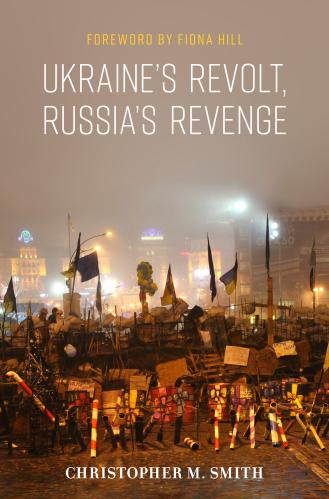
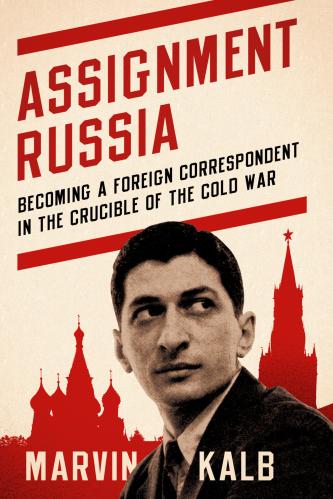
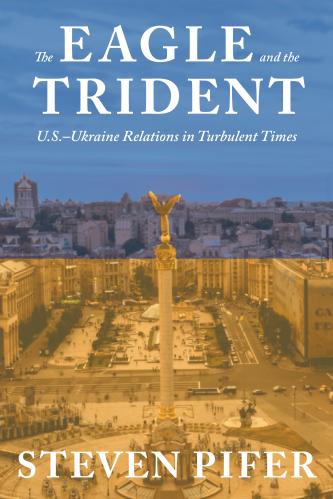
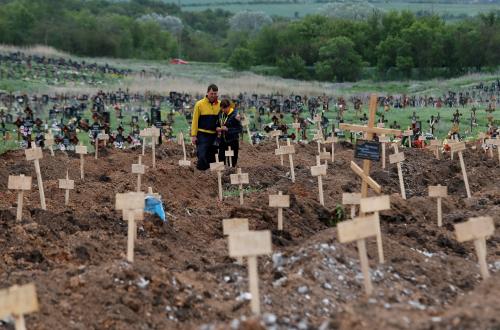
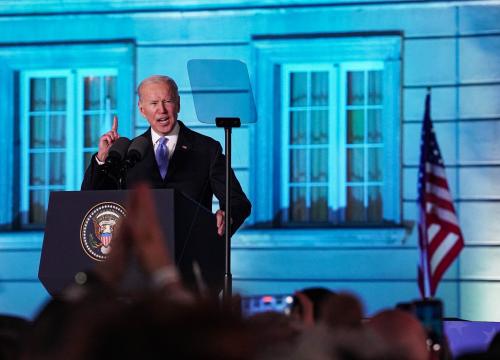
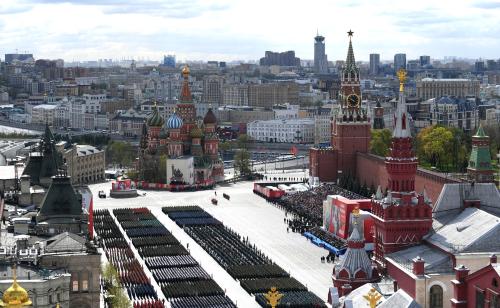
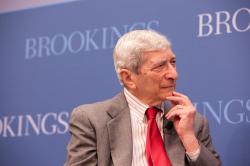
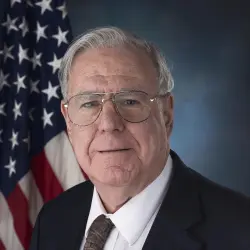



Commentary
Is time on Ukraine’s side?
June 10, 2022